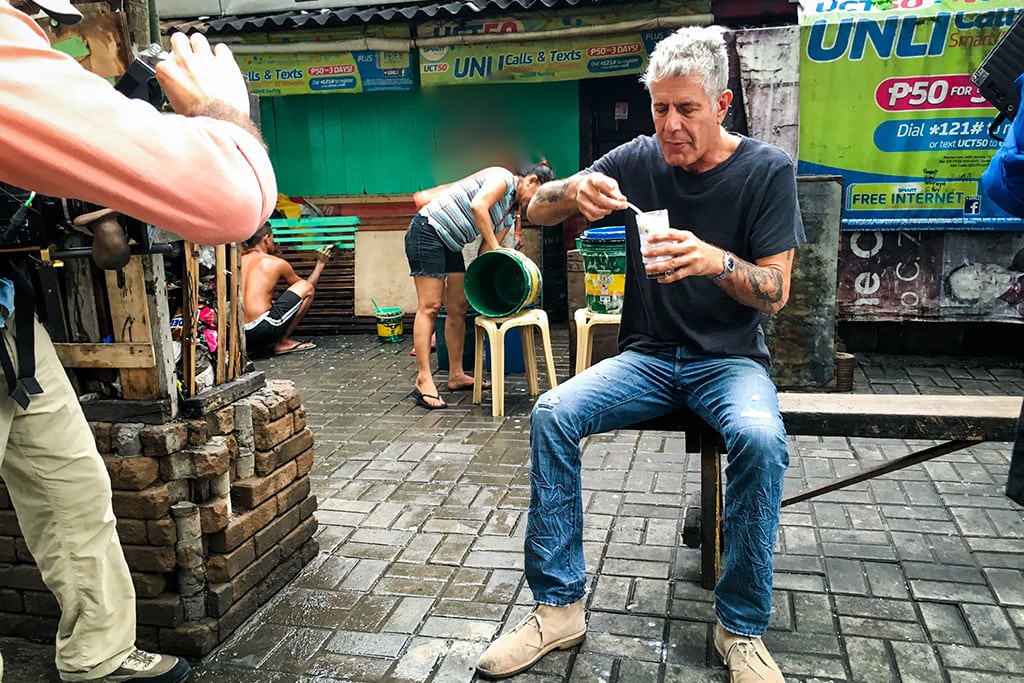Interview: Anthony Bourdain's Ideal TV Audience Is Anthony Bourdain

Skift Take
A single-minded focus on what you think is best, rather than what others are telling you is best for you, can produce both victories and defeats. More than a decade in, it's clear which category Bourdain's travel TV is in.
Anthony Bourdain, now in his 14th year as a chef-turned-author-turned television host makes television for Anthony Bourdain.
His desire, along with that of his long-term production team at Zero Point Zero, is to make travel shows that don't appeal to a well scrutinized demographic. But appeal they somehow manage to do, despite a decidedly contrarian approach to the modern grand tour. In his shows we see poverty, political conflict, development run amok, violence, and how people really live like locals. Even the scenic cathedrals have a complicated backstory.
And it is succeeding. Bourdain is on his third network and regularly wins his time slot: At CNN Bourdain has turned his Sunday evening segments into some of the channel's most-watched non-election related programming, regularly doubling the audiences of Fox News and MSNBC combined.
"I don't make television for an audience really," Bourdain told Skift. "I make it for the same reasons when I cook. You don't see the customers when you're cooking in a kitchen. You put the plates up to the window and the highest and the best thing that could happen is the cooks on either side of you look at it in an approving way. You put it up fast, you put it up good."
You would think that a profane ex-chef with outspoken views on everything would not play well with a mass audience. But Bourdain brings in more then the urban foodie set each week. His deep dives into a list of destinations that are as frequently found in Bradt guides as they are in Fodor's manage to tell a story through food, engagement with local issues, and avoidance of popular tourist sites.
The latest season of Parts Unknown on CNN begins this Sunday night with a visit to Manila, the Philippines during a natural disaster and holiday celebrations. We spoke with Bourdain twice earlier this month. Those conversations have been edited and combined, below.
Skift: Someone at Travel Channel once told me that it was the channel people ended up on when the show they wanted to watch wasn't on. Why isn't travel TV more compelling?
Bourdain: It shouldn't be hard. It should be easy. It's the best job in the world. I have a ridiculous and very unusual amount of freedom to go where I want, do what I want, and tell stories the way I want. It's something I wonder about when I watch other shows. Why don't people just talk like normal people? Why do they use TV voice? That's a question that I'm always struck by. Why do they have to stick with a

